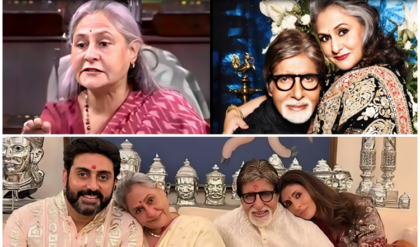Allegations of Favoritism in Miss Grand International 2024
.
.
The Miss Grand International pageant, celebrated for its unique theme of promoting peace and anti-violence, has attracted global attention since its inception.
However, with the rise of its popularity, allegations of favoritism have also emerged. In 2024, these claims became particularly pronounced, sparking debates among fans, contestants, and pageant organizers alike.
This essay delves into the multifaceted nature of these allegations, examining the implications for the pageant and its participants.
Historical Context
The Miss Grand International pageant was established in 2013 and has quickly gained a reputation as one of the leading beauty competitions worldwide.
Unlike traditional pageants that focus primarily on beauty and talent, Miss Grand International emphasizes social advocacy, particularly in promoting peace and preventing violence.
Over the years, the pageant has drawn contestants from diverse backgrounds, each bringing their unique narratives and causes to the forefront.
As the competition has grown in scale and visibility, it has faced scrutiny regarding the fairness of its selection processes. The rise of social media has amplified these discussions, allowing fans and critics to voice their opinions in real-time.
Allegations of Favoritism
1. Judging Criteria
One of the primary allegations surrounding Miss Grand International 2024 involves the criteria used for judging contestants.
Critics argue that the criteria have shifted, favoring contestants who have stronger social media followings or are more commercially viable over those who might genuinely embody the pageant’s values.
This has led to accusations that judges are influenced by personal biases or external pressures, particularly from sponsors.
2. Selection of Finalists
The selection of finalists has also come under scrutiny. Many fans believe that certain contestants were favored due to their national backgrounds or previous pageant experience.
For example, countries with a history of success in international pageants often receive heightened attention, which can disadvantage contestants from less recognized nations.
This perceived bias has sparked frustration among supporters of these contestants, who argue that talent and advocacy should take precedence over nationality and prior achievements.
3. Social Media Influence
In the digital age, social media presence has become a crucial factor in pageantry. Contestants with substantial followings often gain more visibility, which can translate to favoritism in both public voting and judges’ considerations.
In 2024, several contestants were criticized for leveraging their social media platforms to garner votes, leading to questions about the integrity of the competition.
This dynamic has prompted discussions about whether the pageant should adjust its judging criteria to minimize the influence of social media.
4. Sponsorship and Partnerships
The role of sponsorships in Miss Grand International has also been a focal point of criticism. Allegations suggest that certain sponsors may exert pressure on judges to favor specific contestants, particularly those who align more closely with their brand values.
This intersection of commerce and competition raises ethical questions about the pageant’s integrity and the degree to which financial interests may influence outcomes.
Reactions from Contestants
The reactions from contestants regarding these allegations have been varied. Some have chosen to speak out publicly, while others prefer to address their grievances privately.
1. Support for Underdogs
Many contestants have rallied around their peers who are perceived as underdogs, expressing solidarity and calling for a fair evaluation process.
This camaraderie highlights a shared commitment to the core values of the pageant, emphasizing the need for equal opportunity regardless of background or experience.
2. Public Statements
A few contestants have made public statements addressing the allegations of favoritism. They emphasize the importance of transparency and integrity within the competition.
These statements reflect a growing awareness of the need for systemic change within the pageant to ensure that all participants have a fair chance to succeed based on merit.
Organizational Response
In light of these allegations, the Miss Grand International organization has faced pressure to respond and take action.
1. Clarification of Judging Process
The organization has attempted to clarify its judging process, outlining the criteria used to evaluate contestants. However, many critics argue that these explanations do not sufficiently address concerns about potential biases or favoritism.
2. Increased Transparency
To rebuild trust, the organization has initiated efforts to increase transparency in its operations. This includes publicly releasing information about the judges and their qualifications, as well as the criteria used to evaluate contestants.
These measures aim to reassure both participants and fans that the pageant operates fairly.
The Role of Fans and Media
Fans and media play a significant role in shaping perceptions of the pageant and its fairness.
1. Social Media Campaigns
Fans have mobilized through social media campaigns, advocating for a fair evaluation process and highlighting the achievements of all contestants. This grassroots movement has gained traction, reflecting a desire for accountability and integrity within the pageant.
2. Media Coverage
Media coverage of the allegations has varied widely, with some outlets focusing on the drama and controversy while others aim to provide a more nuanced analysis of the issues at hand.
This dichotomy in reporting contributes to the overall narrative surrounding the pageant and influences public opinion.
Implications for the Future
The allegations of favoritism in Miss Grand International 2024 raise critical questions about the future of the pageant and its relevance in an evolving cultural landscape.
1. Need for Reform
As discussions surrounding favoritism continue, there is a growing consensus that reform is necessary. This may involve reevaluating judging criteria, enhancing transparency, and establishing clear guidelines for the role of social media in the competition.
By addressing these issues, the pageant can strive to uphold its core mission of promoting peace and empowerment for all women.
2. Impact on Contestants
The ongoing allegations may deter potential contestants from participating in the future if they perceive the competition as biased or unfair.
This could lead to a decline in diversity and representation within the pageant, ultimately undermining its mission. Ensuring that all contestants feel valued and fairly evaluated is essential for the pageant’s credibility.
Conclusion
The allegations of favoritism in Miss Grand International 2024 highlight complex issues surrounding fairness, representation, and the influence of external factors in pageantry.
As the organization navigates these challenges, it must prioritize transparency, inclusivity, and integrity to uphold its mission. By doing so, Miss Grand International can continue to be a platform for empowerment and advocacy, reflecting the diverse voices and experiences of women worldwide.
In an age where public perception can significantly influence outcomes, it is crucial for pageants like Miss Grand International to adapt and evolve, ensuring that they remain relevant and respected in the global landscape.
The path forward requires a commitment to fairness and an unwavering dedication to the values that underpin the competition, ultimately fostering a more equitable and inclusive environment for all participants.
News
Scandalous! Celebrity Caught in a Shocking Incident with a Fan in Public!”
Shocking Incident Involving Kareena Kapoor: A Fan Misbehaves in Front of the Media In a deeply unsettling incident, Bollywood actress Kareena Kapoor Khan found herself at the center of an unexpected and distressing situation when a fan reportedly touched her…
End of content
No more pages to load






